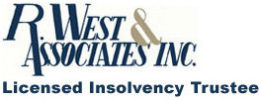Personal Financial Assessment
An important part of solving a debt problem is to figure out how much of your debt you can actually afford to pay. This information helps determine your options. Start by reviewing your monthly income and expenses, and then prepare a monthly budget. To make this task easier, we recommend that you complete our Income and Expense Statement.
Things to consider in your budget
- Include both your present and expected future lifestyle.
- If you have expenses that are not listed on the form, make sure you add them.
- Be as realistic as possible. Record all ongoing expenses such as car repair and maintenance, haircuts, medical expenses (MSP, prescription medications, dentist), and entertainment.
- Ask yourself if each expense is a need or a want.
- At this point, don’t record payments to creditors unless these are payments to secured creditors (such as car payments, mortgages, or other leases).
- You may wish to prepare alternative budgets to reflect changes you can reasonably make to your lifestyle (for example, paying rent instead of a mortgage, renting out a basement suite, or selling your car to eliminate a car payment).
- If you’re self-employed:
1. Include all your business expenses when determining your net income from business.
2. Consider the stability of your income and your cash flow – is there a seasonal nature to it?
3. Factor in GST, CPP, and income tax obligations in your personal household budget.
How to understand your results
The net amount (total income less total expenses) is your estimated ability to pay. If this amount is a negative number, you’re probably living beyond your means. We suggest you review all your expenses to ensure they are truly needs. If you still obtain a negative result, you may wish to contact us for a free confidential consultation on how to deal with your debt.
If you have some ability to pay your debts, then divide your total unsecured debt by the amount you determined you can pay. The resulting figure is the number of months required to repay your debts in full (excluding interest). If the number seems excessively long, you may wish to contact us to review your options. You may qualify for a Consumer Proposal or other settlement with your creditors. Bankruptcy is usually a last resort.
Find out how we can help you become debt-free. Fill in a personal financial questionnaire and call us today.
